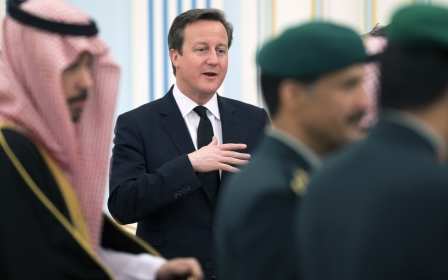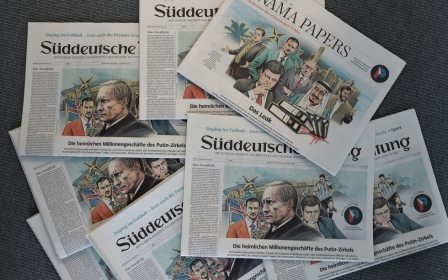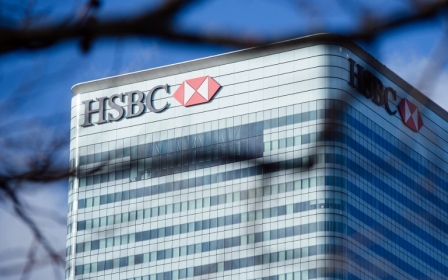The dangers of hypocrisy in dealing with Panama Papers

The mass data leak which has been christened the Panama Papers is one of the largest in history. It contains enormous amounts of information, much of which concerns the financial arrangements of powerful and famous people. Many of them are politicians, even national leaders. The response in the press, and from the publics of many countries, has been correspondingly outsized.
The Prime Minister of Iceland has stepped down; David Cameron, Britain’s Prime Minister, has faced a very difficult week indeed, including many awkward questions about his father’s financial dealings. Many other international figures have been caught up in the ensuing scandal. Much of what these men – people like Vladimir Putin of Russia and Syria’s dictator, Bashar al-Assad – have done has been shady; there is the suggestion of considerable illegality; and in many ways their actions have been more egregious, more immoral, than those of the other politicians who are now battling media maelstroms in their respective countries.
Associates and childhood friends of Vladimir Putin have been said to hold up to $2 billion worth of assets, either for the Russian president or with his direct patronage. In the face of this vast sum, David Cameron’s £30,000 worth of shares in his father’s hedge fund pales in comparison. Yet it is Cameron, not Putin, who has faced the toughest questions; and the same story is true when considering the Middle Eastern corruption revealed by this leak.
What has been discovered about Assad's finances in the Panama leaks is truly interesting; and these revelations demonstrate that he is in many ways more than an archetypal dictator.
The way he has instituted groups of associates, many of them relatives, to bear the financial and legal risk of his actions; the plausible deniability this implies; and the way his agents have operated (creating shell companies and so on), which begins to resemble mafia-style money laundering or kleptocratic rule as much as it does "ordinary" corruption – all of this gives the lie to Assad’s claims of personal frugality, as well as his continued protestations of personal suitability with regard to governing Syria.
The corrupt network exposed by these papers could well prove a great boon for opposition activists, too, as they make Assad’s wealth – his ill-gotten gains – the subject of their campaigns, both in Syria and abroad. These disclosures could also help opposition activists to track down Assad's money, which is of course dramatically different in quantity from that of many who are within the country or who have been forced to flee.
All of this is of course grotesque; the way dictators accumulate wealth, often while impoverishing or actively repressing ordinary people, is truly abhorrent.
Why, then, would some commentators go out of their way to downplay foul play in Russia and Syria and focus exclusively on lesser acts by European states?
In many cases the answer is hypocrisy, pure and simple. Many people on the Left seem to have a particular penchant for defending Putin – or even Assad - from criticism, and would rather have world attention be focused on Cameron or other ideological foes.
Even releases in 2010 from WikiLeaks – which is often championed by critics of Cameron – contained a condemnation of Russia as a "mafia state". Other files from the same cache include American speculations about the nature of Putin’s relationship with "secretive oil trading firm Gunvor". Other documents referred to the Russian state as a "corrupt autocracy", where "people are paying bribes all the way to the top".
Leaving the corruption of real tyrants, real autocrats – like Putin and Assad and many others – unexamined risks letting them get away with it. David Cameron, as mentioned before, has had a very difficult week – despite his having done nothing illegal.
Vladimir Putin, on the other hand, has dismissed the whole thing as an American conspiracy. In Russia, a country where the government wields immense power over the media, this statement could well remain effectively unchallenged. In Syria, those who ask questions like it could end up dead, or their families could be tortured – or they could be tortured themselves.
For Western journalists and activists to remain silent on the same issue – often simply because of a desire to focus on political foes like Cameron or issues of more immediate national significance – would be a tremendous failing, both politically and morally.
If regimes like Assad’s and Putin’s go unchallenged – if their corruption is not documented and exposed – they will continue to exist. Democratic politicians will founder, while dictatorships will be bolstered, not weakened, by these disclosures.
To allow this to happen is a great abdication of a moral duty; it is a tremendous political capitulation; and its hypocrisy could prove disastrous. And if we focus our fire on undeserving targets, those who are most in need of criticism will, cocooned by their status and undeserved wealth, continue to exploit entire nations while claiming to be nothing but innocent of all charges.
- James Snell is a British journalist who has written for numerous international publications, including National Review, The American Spectator, New Humanist and Free Inquiry.
The views expressed in this article belong to the author and do not necessarily reflect the editorial policy of Middle East Eye.
Photo: Porcelain plates bearing portraits of Syrian President Bashar al-Assad (R) and his Russian counterpart Vladimir Putin (L) are displayed at a handicrafts shop in the Syrian capital, Damascus, on 4 February, 2016 (AFP).
Middle East Eye propose une couverture et une analyse indépendantes et incomparables du Moyen-Orient, de l’Afrique du Nord et d’autres régions du monde. Pour en savoir plus sur la reprise de ce contenu et les frais qui s’appliquent, veuillez remplir ce formulaire [en anglais]. Pour en savoir plus sur MEE, cliquez ici [en anglais].





